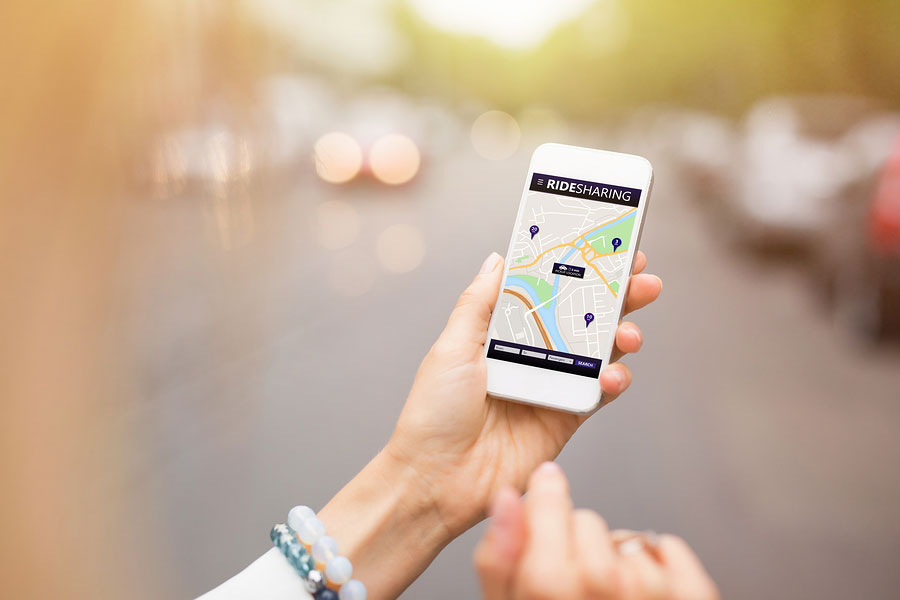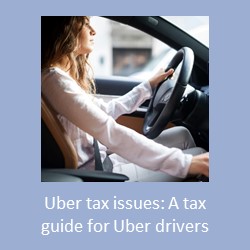
Concerned that too many drivers are avoiding tax, the ATO is cracking down on ride sharing drivers contracted to companies such as Uber, Ola and Didi
Last year the ATO warned Uber drivers that avoiding tax wasn’t an option, this year it’s getting evening tougher.
Banks are required to provide details of ALL customer payments to ride sharing services for the past AND coming financial year. If you’ve been doing a little moonlighting, it’s probably time to come clean and cough up your share of tax.
In a statement, the ATO said: “The data we acquire will be electronically matched with certain sections of ATO data holdings to identify taxpayers.’’
Intended to promote voluntary compliance and tax system confidence, the ATO’s data matching efforts will ensure that ride sharing drivers meet their obligations of ABN and GST registration. Drivers are required to charge GST on each ‘ride’ and declare their income from their ride sharing activities on their tax returns.
Ride sharing is considered a taxi service and therefore as a ride sharing driver you are subject to the same tax laws as other taxi services.
Ride sharing drivers: Do you know your tax obligations?
If you are a driver for a ride sharing service, you need to treat it like any other business. You are not an employee for these services; you are a contractor. This means you also have different obligations.
The basics are as follows:
- All the money you earn as a driver is treated as income, so you must declare it on your tax return.
- As a ride sharing driver it is a requirement that you register for GST, regardless of how much (or how little) you earn.
- Pay GST on every fare received from passengers.
- Register for an Australian Business Number (ABN) and provide this to the service owner you are contracted to.
- You are self-employed for these services so regular reporting in the form of Business Activity Statements (BAS), is essential.
Our advice?
Ride sharing can be very profitable and it’s easy to fit it into your schedule and lifestyle. However, it’s a good idea to chat with a tax agent before you start any ride sharing work.
Already working as a driver? Are you SURE you’re meeting your obligations to the ATO? If not, read the other articles below and get on track, because the ATO cost could be terrible for you later.
If you haven’t declared your driving income on your tax return and didn’t register for an ABN or GST, it’s time to act. The sooner you become legal and “above board” the better. With the ability to to track payments right back to individual drivers, it’s only a matter of time before the ATO catch up with you.
The Good News!
It’s not all doom and gloom on the tax front. Remember, you can claim tax deductions for your ridesharing expenses
Tax deductions for ride sharing drivers
As with every profession, there are ways to reduce your annual tax bill each year. Many expenses related to your job as a ride sharing driver are claimable as a deduction on your tax return.

A few car related expenses you could claim.
Please note: You will need to keep a logbook to claim all these running expenses and you can claim only the ride sharing percentage. Your Etax Accountant will quickly help you work out how much you can claim, if you’re not sure.
- Car running costs
- Car rego and insurance
- Repairs and servicing
- Tyres
- Car maintenance
- Car cleaning
- Depreciation
- Interest (on car loan)

The Cents Per Kilometre method is not good if you drive for a living:
In the 2023/24 tax year you can claim 85 cents per kilometre, up to 5000km. This amount is regardless of the engine size of your car. This means a maximum claim of $4250 for car running costs for the entire tax year.
As a ride sharing driver, this method will probably mean you are out of pocket, so make sure you start using a car log book as soon as possible.
You may also be able to claim the following work related costs
- Costs of registering as ride sharing driver (application fees, medical and police checks etc.)
- Work-related parking expenses
- Mobile phone costs (here’s more about claiming work-related phone use)
- Music subscription fees
- Refreshments for passengers
- Stationery
- Sunglasses (if you drive through the day)
- Uniforms (if mandatory and with logo)
- Uniform laundering
- Tax agent/accountant fees
- Bank fees
TOP TIP: Remember your tax agent fees are tax deductible and affordable. Don’t ignore the tax man and don’t go without tax advice, because that could be very expensive later on and the ATO never forgets a debt!







